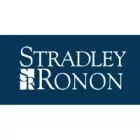On Oct. 28, 2020, the Securities and Exchange Commission (the SEC) approved new Rule 18f-4 under the Investment Company Act of 1940 (the 1940 Act) and further amended other rules and related forms that govern the use of derivatives and certain other transactions by registered open-end funds, closed-end funds, and business development companies (the Final Rule). The Final Rule comes nearly five years after the SEC first proposed modernizing its approach to the use of derivatives by registered funds in December 2015.
The Final Rule ushers in a new era of derivatives regulation for registered funds and business development companies (BDCs) that discards the SEC's historical "asset segregation" and "cover" regime in favor of a regime that relies on Value-at-Risk (VaR) and a derivatives risk management program, which includes stress testing, to limit the amount of leverage that a registered fund or BDC can employ. In doing so, the Final Rule sweeps away the SEC and the SEC staff's patchwork of derivatives regulation that it promulgated over the last 40 years and creates a harmonized set of ground rules for funds that use derivatives.
The key components of the Final Rule are similar to the proposed version published in November 2019 (the 2019 Proposal), including its centerpiece, new Rule 18f-4, which sets forth the conditions under which open-end funds, closed-end funds and BDCs can enter into derivatives transactions. However, the Final Rule contains several important revisions in response to industry comments, which are highlighted in Exhibit A to this alert. Read more...
The content of this article is intended to provide a general guide to the subject matter. Specialist advice should be sought about your specific circumstances.







